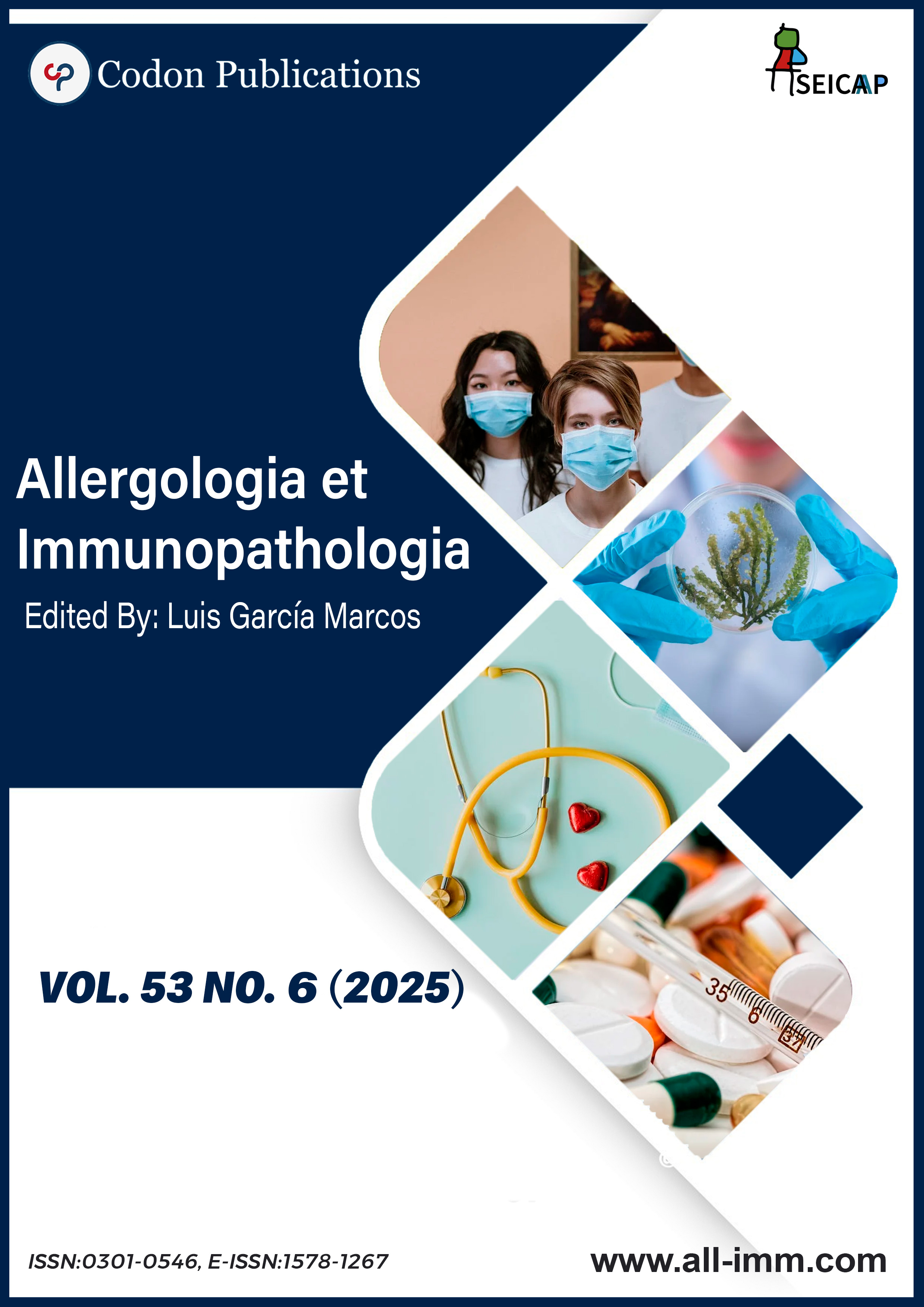Single food allergy and reasons for multiple exclusions: A prospective study
Main Article Content
Keywords
food allergies, IgE-mediated, motivation
Abstract
Food Allergies (FA) presents an increasing global challenge, influenced by factors such as genetic predisposition, ethnicity, age, and cultural dietary practices. Patients diagnosed with IgE-mediated FA must adhere to strict dietary restrictions to avoid potential life-threatening anaphylactic reactions. Such restrictions are crucial but come with significant consequences as increased nutritional risks, higher costs for special meal preparations and medical care with potential social and psychological impacts on both the individual and their family The impact of FA on quality of life is frequently surrounded by persistent fear of adverse reactions after consuming certain foods. To better understand the behavior of patients with FA this study aims to explore whether patients with confirmed IgE-mediated FA tend to exclude other foods and to identify possible reasons for such exclusions.
References
2 Solé D, Silva LR, Cocco RR, Ferreira CT, Sarni RO, Oliveira LC, et al. Consenso Brasileiro sobre Alergia Alimentar: 2018—Parte 1 e 2—Etiopatogen. Rev. Bras. Alerg. Imunopatol. 2018;2(1):1–14. 10.5935/2526-5393.20180005
3 Kostecka M, Kostecka-Jarecka J, Kostecka J, Iłowiecka K, Kolasa K, Gutowska G, Sawic M. Parental knowledge about allergies and problems with an elimination diet in children aged 3 to 6 years. Children (Basel). 2022;9(11):1693. PMid: 36360421; PMCID: PMC9689114. 10.3390/children9111693
4 Gupta RS, Warren CM, Smith BM, Blumenstock JA, Jiang J, Davis MM, et al. The public health impact of parent-reported childhood food allergies in the United States. Pediatrics. 2018;142(6). doi:10.1542/peds.2018-1235. Epub 2018 Nov 19. Erratum In: Pediatrics. 2019;143(3). PMid: 30455345; PMCID: PMC6317772. 10.1542/peds.2018-3835
5 Warren CM, Jiang J, Gupta RS. Epidemiology and burden of food allergy. Curr. Allergy Asthma. Rep. 2020;20(8). 10.1007/s11882-020-00978-6
6 Lange L. Quality of life in the setting of anaphylaxis and food allergy. Allergo J. 2014;23(2):87–93. 10.1007/s40629-014-0029-x
7 Parrish CP. A review of food allergy panels and their consequences. Ann. Allergy Asthma Immunol. 2023 Oct 131(4):421–426. Epub 2023 Apr 23. PMid: 37098403. 10.1016/j.anai.2023.04.011
8 Warren C, Gupta R, Seetasith A, Schuldt R, Wang R, Iqbal A, et al. The clinical burden of food allergies: Insights from the Food Allergy Research & Education (FARE) patient registry. World Allergy Organ. J. 2024 Mar 15;17(3):100889. PMid: 38523669; PMCID: PMC10959723. 10.1016/j.waojou.2024.100889
9 Sicherer SH and Sampson HA. Food allergy: A review and update on epidemiology, pathogenesis, diagnosis, prevention, and management. J. Allergy Clin. Immunol. 2018;141(1):41–58. 10.1016/j.jaci.2017.11.003
10 Trogen B, Jacobs S, Nowak-Wegrzyn A. Early introduction of allergenic foods and the prevention of food allergy. Nutrients. 2022;14(15):3131. 10.3390/nu14153131

